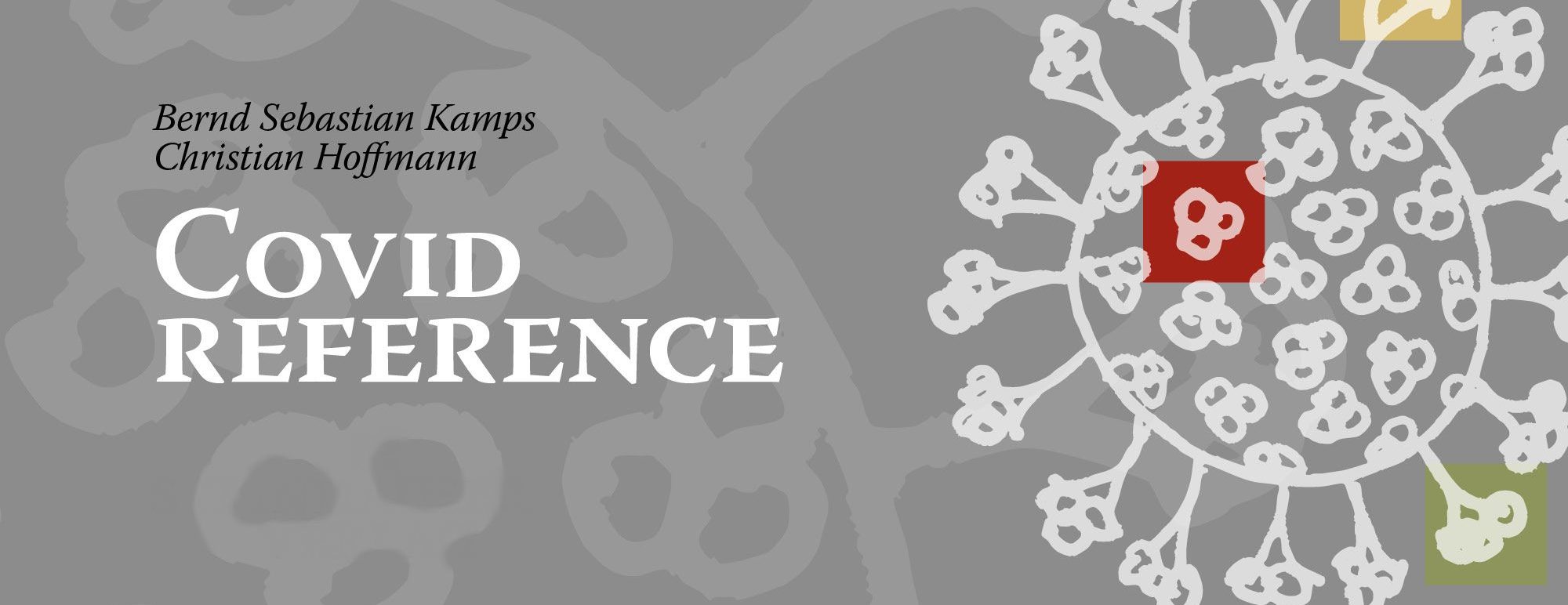Favipiravir is another broad antiviral RdRp inhibitor that has been approved for influenza in Japan (but was never brought to market) and other countries. Favipiravir is converted into an active form intracellularly and recognized as a substrate by the viral RNA polymerase, acting like a chain terminator and thus inhibiting RNA polymerase activity (Delang 2018). In the absence of scientific data, favipiravir has been granted five-year approval in China under the trade name Favilavir® (in Europe: Avigan®). A loading dose of 2400 mg BID is recommended, followed by a maintenance dose of 1200-1800 mg QD. However, in 7 patients with severe COVID-19, the favipiravir trough concentration was much lower than that of healthy subjects in a previous clinical trial (Irie 2020). Potential drug-drug interactions (DDIs) have to be considered. As the parent drug undergoes metabolism in the liver mainly by aldehyde oxidase (AO), potent AO inhibitors such as cimetidine, amlodipine, or amitriptyline are expected to cause relevant DDIs (review: Du 2020). Some encouraging preliminary results in 340 COVID-19 patients were reported from Wuhan and Shenzhen (Bryner 2020).
- A first open-label RCT posted on March 26 (Chen 2020) was conducted in 3 hospitals in China, comparing arbidol and favipiravir in 236 patients with pneumonia. Primary outcome was the 7-day clinical recovery rate (recovery of fever, respiratory rate, oxygen saturation and cough relief). In “ordinary” COVID-19 patients (not critical), recovery rates were 56% with arbidol (n = 111) and 71% (n = 98) with favipiravir (p = 0.02), which was well tolerated, except for some elevated serum uric acid levels. However, it remains unclear whether these striking results are credible. In the whole study population, no difference was seen. Many cases were not confirmed by PCR. There were also imbalances between subgroups of “ordinary” patients.
- No effect of viral clearance was found in RCT on 69 patients with asymptomatic to mild COVID-19 who were randomly assigned to early or late favipiravir therapy (same regimen starting day 1 or day 6). Viral clearance occurred within 6 days in 67% and 56%. Of 30 patients who had a fever (≥ 37.5°C) on day 1, time to no fever was 2.1 days and 3.2 days (aHR, 1.88; 95% CI 0.81–4.35). During therapy, 84% developed transient hyperuricemia. Neither disease progression nor death occurred in any of the patients in either treatment group during the 28-day study (Doi 2020).
In the pilot stage of a Phase II/III clinical trial, 60 patients hospitalized with COVID-19 pneumonia were randomized to two different dosing groups or standard of care (Ivashchenko 2020). Favipiravir enabled SARS-CoV-2 viral clearance in 62.5% of patients within 4 days and was safe and well-tolerated. The proportion of patients who achieved negative PCR on day 5 on both dosing regimens was twice as high as in the control group (p < 0.05).
Find the entire treatment chapter at https://covidreference.com/treatment
Acalabrutinib – Anticomplement therapies – Azithromycin – Camostat – Chloroquine – Colchicine – Convalescent plasma – Corticosteroids – Cytokine blockers – Famotidine – Favipiravir – G-CSF – Human recombinant soluble ACE2 – Hydroxychloroquine – Ibrutinib – Iloprost – Interferons – JAK inhibitors – Leflunomide – Lopinavir – Monoclonal antibodies – N-acetylcysteine – Oseltamivir – (other) Protease inhibitors – (other) RdRp inhibitors – REGN-COV2 – Umifenovir
